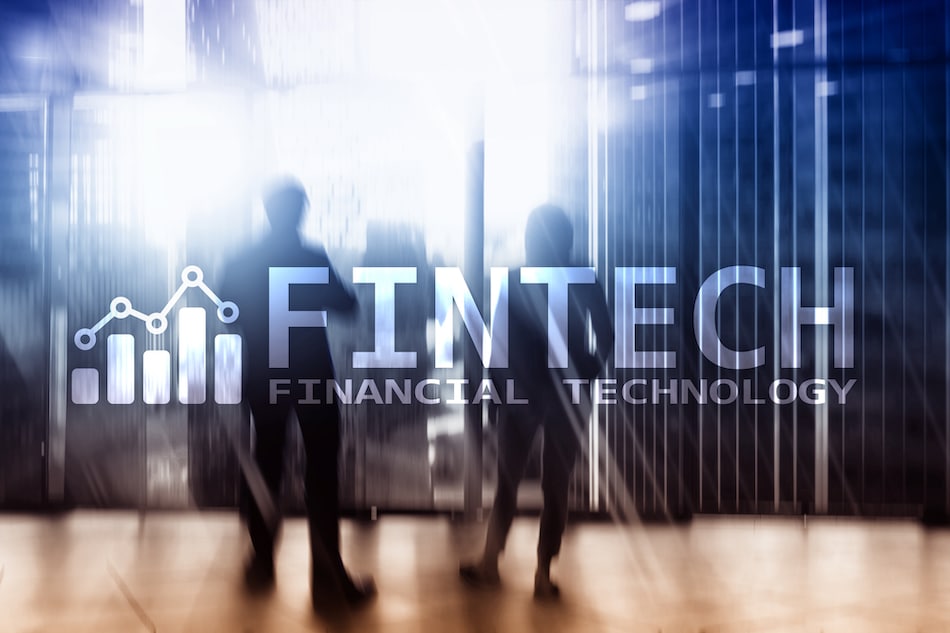Key Takeaways
Fintech companies are well-known for innovating in an industry that is slow to change. But innovation in a traditional sector like finance doesn’t come without risks. As a fintech company, you need to think ahead to protect your business and customers from risks like cybersecurity threats, management liability litigation, and economic insecurity. Let’s review past, current, and upcoming fintech insurance trends to provide insights into structuring risk management for successful fintech companies.
Understanding the Fintech Landscape
The fintech industry continues to experience explosive growth, accelerating even within the past five years. According to Deloitte, the industry’s value surpassed $180 billion in 2023 and is projected to reach nearly $188 billion in 2024. Beyond just valuation, the sheer number of new entrants underscores this growth: the global landscape boasts nearly 30,000 fintech startups compared to just around 12,000 in 2019, highlighting the rapid pace of innovation and disruption within the financial space.
With many new businesses in the market and many traditional financial companies shifting toward fintech, it’s not surprising to see continued merger and acquisition (M&A) activity. A common theme among these M&As is the retention of fintech branding. Many larger companies funnel funding and resources to acquired startups, mostly letting them market and brand themselves as before. This approach could play a role in long-term customer retention and loyalty.
Finally, cybersecurity continues to be one of the largest threats in the fintech industry. According to an industry report, 55% of financial institutions faced ransomware attacks last year. Cybersecurity experts generally agree this number will continue to rise, mainly due to a shift in the hacking industry. Here’s why.
Before, hackers worked alone to exploit weak areas in a business’ defense. Now, an entire industry of organized cybercrime has blossomed to target industries, sectors, and individual businesses using advanced technology. This means fintech companies must stay vigilant to help protect their business and customer data from costly cyberattacks.
Measuring Up: Fintech Market Review for 2023
Our risk management experts typically provide outlooks for industries we serve, and fintech is one of the most rapidly changing and exciting markets. Let’s check on some of our 2023 insights to see what has unfolded in the industry over the past year.
AI and Machine Learning Increased in Fintech
The year 2023 witnessed a continued rise of Artificial Intelligence (AI) and Machine Learning (ML) in the Fintech industry. These technologies are rapidly transforming various aspects, from streamlining customer experiences with chatbots and personalized advice to enhancing fraud detection and risk management through data analysis and pattern recognition.
As the market continues to grow, we can expect further integration of AI and ML into core financial services, potentially leading to increased efficiency, improved security, and even entirely new financial products and services tailored to individual needs and preferences.
Financial Data Storage Evolved and Revolutionized
While the decentralization of banking and financial data through open banking was predicted to be a major revolution in 2023, its impact has been ongoing and continues to evolve.
Open banking has facilitated seamless data sharing between financial institutions, customers, and third-party services. This has benefited both parties: customers can manage accounts across platforms more easily, and fintech institutions can leverage data insights for improved product offerings and marketing strategies. Additionally, fintech insurance companies can utilize this data to better assess risk and tailor insurance products to individual customer needs.
Looking forward, it will be interesting to see how open banking continues to shape the financial landscape and potentially pave the way for further innovation in the industry.
Embedded Finance Became More Popular
2023 witnessed a surge in the popularity of embedded finance, exceeding initial predictions. This trend involves non-financial businesses integrating financial services like buy now, pay later (BNPL) options into their existing platforms. This seamless integration has proven beneficial for both parties:
- Non-financial companies: They can attract more customers by offering convenient financial services and enhance user engagement within their ecosystem.
- Fintech companies: They can reach new customer segments by partnering with non-finance businesses and expand their service offerings through embedded finance solutions.
The year saw a significant rise in fintech companies specializing in providing embedded finance solutions, catering to the increasing demand from non-financial businesses. Additionally, we witnessed the emergence of standalone embedded finance providers, offering a broader range of financial services to be embedded within various platforms. This trend is expected to continue shaping the financial landscape, blurring the lines between traditional finance and everyday experiences.
What to Expect from Fintech in 2024
As in the recent past, 2024 will offer new opportunities and fresh challenges for fintech businesses. Here are our top expectations for the next year in the fintech industry.
Market Consolidation
The fintech industry is currently witnessing a significant trend of market consolidation, where smaller companies are merging with larger entities or being acquired. This movement is largely driven by the challenges of fundraising in a competitive landscape, where securing investment capital can be particularly daunting for emerging startups.
Additionally, market saturation plays a crucial role; as the fintech space becomes increasingly crowded, companies are finding it difficult to maintain a unique value proposition. Consolidation, therefore, offers a strategic avenue for fintech firms to pool resources, enhance their offerings, and achieve economies of scale, thereby positioning themselves more strongly in a competitive market.
Rise of AI and Machine Learning
The fintech sector is increasingly harnessing the power of Artificial Intelligence (AI) and Machine Learning (ML) to revolutionize financial services. These technologies are pivotal in analyzing vast amounts of data to predict trends, personalize services, and enhance decision-making processes.
A prime application is in fraud detection, where AI algorithms can identify suspicious activities with unparalleled accuracy and speed. Additionally, AI and ML are instrumental in developing personalized finance solutions, offering tailored advice and product recommendations based on individual user behavior and preferences. This integration of AI and ML not only streamlines operations but also significantly elevates the customer experience, setting new standards in fintech innovation.
Focus on Financial Inclusion
Financial inclusion is paramount in ensuring that individuals and businesses have access to useful and affordable financial products and services that meet their needs – transactions, payments, savings, credit, and insurance – delivered in a responsible and sustainable way.
Fintech stands at the forefront of promoting financial inclusion by leveraging technology to reach underserved and unbanked populations. Through innovative solutions such as mobile banking, digital wallets, peer-to-peer lending, and microfinance services, fintech companies are breaking down traditional barriers to financial services. By doing so, they not only foster economic empowerment but also contribute to the overall economic growth and development of communities worldwide.
Emerging Technologies
Emerging technologies, particularly blockchain, are poised to significantly impact the fintech sector by enhancing transparency, security, and efficiency in financial transactions. Blockchain’s decentralized nature allows for secure, traceable, and tamper-proof record-keeping, revolutionizing how transactions are conducted and recorded.
An exemplary utilization of blockchain in fintech is in smart contracts. These are self-executing contracts with the terms directly written into lines of code, facilitating, verifying, or enforcing the negotiation or performance of a contract automatically. This not only reduces the need for intermediaries, lowering costs and increasing speed, but also opens new avenues for creating trustless, decentralized financial services, thereby transforming the landscape of the financial industry.
Regulatory Landscape
The regulatory landscape in the fintech sector is rapidly evolving, reflecting the pace at which financial technologies themselves are advancing. As fintech firms innovate and disrupt traditional financial models, regulations must adapt to address new challenges and risks, including data security, consumer protection, and financial stability.
Staying abreast of regulatory updates is crucial for fintech companies to ensure compliance and navigate the complexities of the global financial ecosystem effectively. Being informed enables these firms to anticipate changes, adapt their operations accordingly, and seize opportunities for growth while maintaining the trust of consumers and regulators alike. Thus, a proactive approach to regulatory engagement is essential for success in the dynamic fintech environment.
How Insurance Responds to the Shifting Fintech Landscape
The ever-changing landscape of the fintech industry means insurance for fintech is also consistently changing. Insurance companies must keep up with innovations and all the new risks those innovations present. Let’s look at how insurance responds to the industry through recent fintech insurance trends.
Adapting to New Risks
Insurance companies are continuously adapting their products and services to cover the unique risks emerging within the fintech space. This includes:
- Cybersecurity threats: Offering coverage against cyberattacks, data breaches, and other digital risks specific to fintech businesses.
- Emerging technologies: Developing coverage solutions for risks associated with new technologies utilized by fintech companies, such as blockchain and artificial intelligence.
- Regulatory changes: Tailoring offerings to address compliance requirements and regulations surrounding data privacy and security, particularly with the increasing adoption of open banking practices.
Increased Collaboration
We saw a rise in collaboration between insurance companies and fintech players, including:
- Partnership models: Traditional insurers are partnering with fintech startups to develop and offer innovative insurance products embedded within the fintech platforms, creating a more seamless experience for customers.
- Data sharing: Carefully regulated data sharing between insurers and fintechs allows for improved risk assessment and tailored insurance solutions for specific customer segments within the fintech ecosystem.
Focus on Data Analytics
Insurance companies are increasingly leveraging data analytics to:
- Develop risk models: Utilize data from fintech platforms to better understand and price risks associated with new financial products and services.
- Prevent fraud: Employ advanced analytics tools to detect and prevent fraudulent activities within the fintech space.
- Personalize coverage: Use data insights to offer personalized insurance solutions tailored to the specific needs and risk profiles of individual users within the fintech ecosystem.
Evolving Distribution Channels
We observed a shift toward:
- Digital distribution: Insurance companies are offering insurance products and services through online channels and mobile apps, aligning with the digital-first approach of most fintech platforms.
- Embedded insurance: Integrating insurance directly within the user experience of fintech platforms, simplifying access and offering a more convenient way for customers to acquire necessary coverage.
These developments highlight the dynamic nature of the insurance industry as it adapts to the ever-changing fintech landscape. By embracing innovation and collaboration, insurance companies are creating new solutions to address the unique needs and risks of the growing fintech ecosystem.
Navigating the complex world of fintech insurance can feel daunting, but it doesn’t have to be. At Founder Shield, we understand the unique risks and challenges faced by businesses in this rapidly evolving space. Our team of specialists, armed with deep industry knowledge and a passion for supporting fintech innovation, is here to help. Don’t settle for generic solutions.












